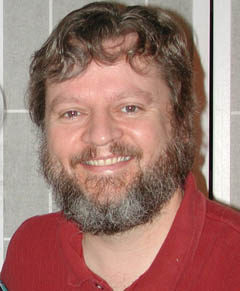Writing daily
I'm building a new habit: writing every day. I've concluded that I can't be a filmmaker without being a screenplay writer. I'm a really fast writer, but fiction is new to me. I'm enjoying it. Working on several things at once, like I always do, those two Pisces fish always swimming in multiple directions. Have been for a month or two working on a Cambodian story with Chath, based loosely on his own experiences. And just starting a couple of fantasy stories, so we can show off our dragons.
Over the last several years I've been immersing myself in all things about filmmaking, including a lot of study of what makes a story work. Feels like I have a good grounding, and with half a century plus of life experience, maybe a few things to say. So, the new habit: before I do anything else much in the morning, sit myself down to do "at least 20 minutes" of writing, on anything or any aspect that I'm inspired to. The last two days it has produced over 2 hours per day of work on these stories.
Several key things are emerging in my understanding about writing fiction.
1) When someone acts, the universe needs to react in unexpected or exaggerated ways. Interesting reversals need to happen at least every 10-15 minutes. Surprise, surprise, when you put those into a 2 hour screenplay, you have inciting event in the first 15 minutes, act 1 crisis by minute 30, a change of direction or foreshadowing around 45, a point of no return around 60, all is lost around 75, major crisis of the story around 90, and an interesting or surprising resolution around 105. Sound familiar? If you group those into 30,60,30 minute groups, they form Act 1,2,3.
2) Don't say what the character means. Somehow in fiction, even a good character ends up lying or speaking sideways much of the time, and speaking the truth through subtext and action.
3) Leave the audience a lot of opportunity to co-create the story. Leave sentences unfinished, expressions understated, implications delayed in resolution, questions unanswered.
4) Conflict is important, but that doesn't have to translate to shouting and shooting. Very interesting conflicts can be internal in various characters, or between choices in moral dilemnas. I'm remembering McKee pointing out that a moral choice, to choose between right and wrong, is not an interesting choice for the audience to see, for everyone basically knows that one should choose right. What is interesting is a moral dilemna, where neither choice is obvious or merely right.
Over the last several years I've been immersing myself in all things about filmmaking, including a lot of study of what makes a story work. Feels like I have a good grounding, and with half a century plus of life experience, maybe a few things to say. So, the new habit: before I do anything else much in the morning, sit myself down to do "at least 20 minutes" of writing, on anything or any aspect that I'm inspired to. The last two days it has produced over 2 hours per day of work on these stories.
Several key things are emerging in my understanding about writing fiction.
1) When someone acts, the universe needs to react in unexpected or exaggerated ways. Interesting reversals need to happen at least every 10-15 minutes. Surprise, surprise, when you put those into a 2 hour screenplay, you have inciting event in the first 15 minutes, act 1 crisis by minute 30, a change of direction or foreshadowing around 45, a point of no return around 60, all is lost around 75, major crisis of the story around 90, and an interesting or surprising resolution around 105. Sound familiar? If you group those into 30,60,30 minute groups, they form Act 1,2,3.
2) Don't say what the character means. Somehow in fiction, even a good character ends up lying or speaking sideways much of the time, and speaking the truth through subtext and action.
3) Leave the audience a lot of opportunity to co-create the story. Leave sentences unfinished, expressions understated, implications delayed in resolution, questions unanswered.
4) Conflict is important, but that doesn't have to translate to shouting and shooting. Very interesting conflicts can be internal in various characters, or between choices in moral dilemnas. I'm remembering McKee pointing out that a moral choice, to choose between right and wrong, is not an interesting choice for the audience to see, for everyone basically knows that one should choose right. What is interesting is a moral dilemna, where neither choice is obvious or merely right.



1 Comments:
stuff like this is really tough for me to accept. it's like it removes the magic from movies to know how calculated the whole thing is.
like it's unreal. I want my movies to be real.
Post a Comment
<< Home